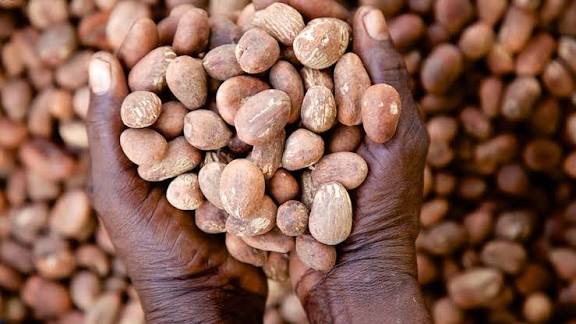The Centre for the Promotion of Private Enterprise (CPPE) has warned that the Federal Government’s sudden six-month ban on raw shea nut exports has caused a sharp market downturn, with prices plunging by more than 30% and widespread disruptions across the value chain.
Although the policy is aimed at boosting local processing and industrial growth, its abrupt enforcement has left farmers, aggregators, exporters, and logistics operators grappling with heavy financial losses.
In a recent policy brief, the Chief Executive Officer of CPPE called for a phased and consultative transition rather than immediate restrictions, stressing that the current approach risks worsening rural poverty and eroding investor confidence.
Since the ban was approved in August, shea nut prices have collapsed, leaving many rural producers unable to recover their production costs. Aggregators, who act as a bridge between farmers and exporters now face mounting stockpiles of unsold produce and the threat of defaulting on loans taken to finance procurement.
The effects are also rippling through the export sector. Exporters tied to international contracts face potential defaults, exposing them to litigation and reputational damage. With most relying on bank financing, blocked export channels now compromise repayment capacity and raise the risk of widespread loan defaults.
Nigeria’s non-oil export sector has recently gained momentum, generating more than \$3 billion in revenue in the first quarter of 2025. However, sudden policy shifts, the CPPE warned, cast a shadow of uncertainty over the sector. “Unpredictable bans heighten risk and discourage investment, not only in shea but across the wider non-oil economy,” the policy brief noted.
The association further cautioned that the ban threatens thousands of jobs in cultivation, aggregation, logistics, and trade. It argued that the move effectively penalizes primary producers while handing advantages to processors, undermining inclusive growth.
To strike a balance, the CPPE recommended:
– Introducing a phased transition with clear timelines, allowing exporters to fulfill existing contracts.
– Tackling structural challenges in processing, including power supply, logistics, infrastructure, and financing, to build competitiveness.
– Safeguarding farmer incomes to prevent rural producers from subsidizing processors.
– Establishing regular stakeholder consultations to ensure transparency and trust in policymaking.
While local value addition remains a critical part of Nigeria’s diversification strategy, the CPPE stressed that it must not come at the expense of rural livelihoods. “A phased transition, backed by reforms, will ensure processors thrive through competitiveness rather than artificially cheap raw materials,” the group said.
The Federal Government has justified the ban as a measure to curb informal trade and strengthen Nigeria’s shea industry, projecting it could generate $300 million annually in the short term. The restriction, effective immediately, is subject to review after six months.
For now, however, the immediate fallout has rattled producers and investors alike, underscoring the urgent need for a balanced approach that delivers industrial growth without destabilizing rural economies.










